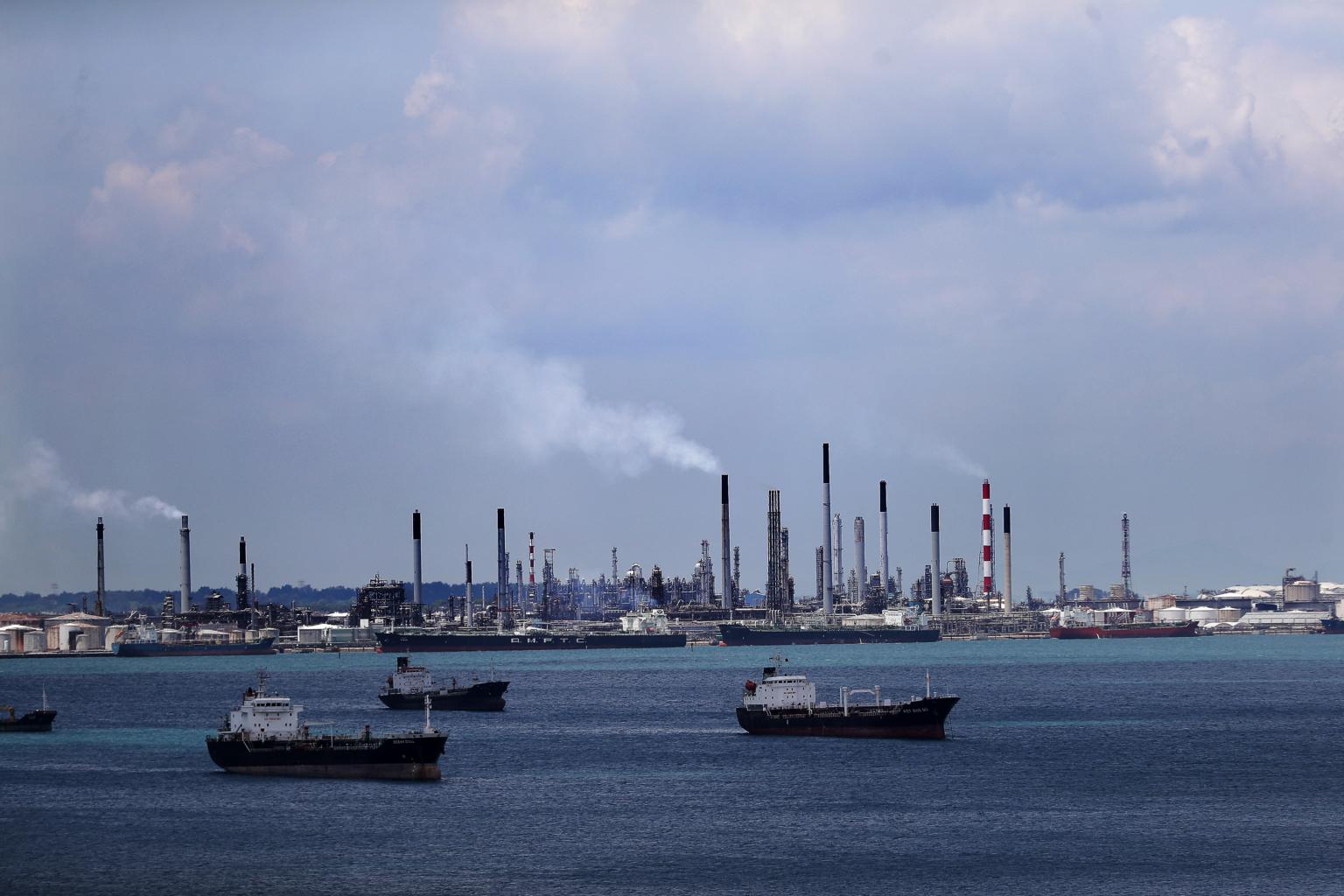Covid-19 accelerated Shell Singapore's plan to cut emissions, transform Pulau Bukom site: Chairman
Shell Singapore has drawn up a 10-year plan to cut CO2 emissions from its operations here by about a third.
Sign up now: Get ST's newsletters delivered to your inbox

In Singapore, the Pulau Bukom Manufacturing Site will pivot from a crude oil-based product slate towards new, cleaner fuels.
PHOTO: ST FILE
SINGAPORE - Shell Singapore has drawn up a 10-year plan to cut CO2 emissions from its operations here by about a third.
The plan builds on Shell's overarching ambition to eliminate all of its own emissions and the bulk of greenhouse gases from fuel it sells to customers by 2050.
The plan was outlined in 2017, but this year's collapse of the oil market amid the coronavirus pandemic - with consumption and prices falling to historic lows - accelerated the move.
Ms Aw Kah Peng, chairman of Shell Companies in Singapore, said the pandemic came as a reality check, drawing parallels to what could happen if preparations are not made for the worst-case scenarios associated with climate change.
"We already had our emission goals and low-carbon energy plans but Covid-19 made us focus on the challenge of the transition even more. We realised what may happen if we are unable to manage climate change," she told The Straits Times in an interview.
Shell's parent, Royal Dutch Shell, in September decided to cut its global refining portfolio to six energy and chemicals parks, from its current 14 sites.
Shell aims to have net-zero emissions from its own operations - categories known as scope one and two - by 2050.
It also intends to sell products with lower carbon intensity, such as renewable power, biofuels and hydrogen, thereby cutting its scope three emissions by around 30 per cent by 2035 and 65 per cent by 2050.
In Singapore, the Pulau Bukom Manufacturing Site - one of the six parks - will pivot from a crude oil-based product slate towards new, cleaner fuels.

Ms Aw said the company will reduce its crude processing capacity by about half - to 250,000 barrels a day from the current level of 500,000 - to deliver a significant reduction in CO2 emissions.
Aided by a site-wide digitalisation programme, the Bukom refinery will be reconfigured to produce cleaner fuels such as biofuels, and more specialities, like bitumen, she said.
The company is also looking at the possibility of using different feedstocks and renewable raw materials, such as recycled chemicals.
As Bukom transforms and becomes smaller and smarter, the resizing of operations will result in fewer but more highly skilled jobs as digitalisation and automation progress.
The 1,300-strong Bukom workforce will be cut to 1,100 by the end of 2021, and will be downsized to 800 in another two years.
The reduction in crude refining capacity will be achieved at a faster pace, probably in the next year or two.
To drive the transition, Shell will have to increase investments in own assets and, critically, in its own people, Ms Aw said.
"Figuring out how to get there will mean asking our own people and rethinking our business model and our understanding of the customer - what is the customer looking for and how would we serve our customer," she said.
The company will also need to partner key stakeholders and customers.
In that regard, some of the broader energy transition initiatives include looking into utility-scale solar generation to build on the more than 3 megawatt peak Shell has already built at its Pandan distribution terminal, Seletar aviation site and Tuas Lubricants Plant.
By 2030, Shell Singapore aims to have an extensive network of electric vehicle charging options for its customers, all within a short drive, from their home, workplace or when they are on the go.
In shipping, its LNG bunkering joint venture with Keppel Offshore & Marine, FueLNG will scale up with the arrival of Singapore's first bunkering vessel in late 2020, contributing to Singapore's ambition to decarbonise shipping.
Shell is also working with the National Environment Agency on a joint feasibility study for the set-up of waste segregation facilities for local plastic waste and plastic waste-to-energy plants.
Given its global experience in trading environmental products - in schemes such as European Union Allowances, US cap-and-trade programme and US CO2 compliance futures - Shell is engaging its customers in Singapore to provide carbon-neutral solutions to meet their climate objectives.
"Our decisive action today will help Shell in Singapore stay resilient and build a cleaner, more sustainable future for all of us," Ms Aw said.


